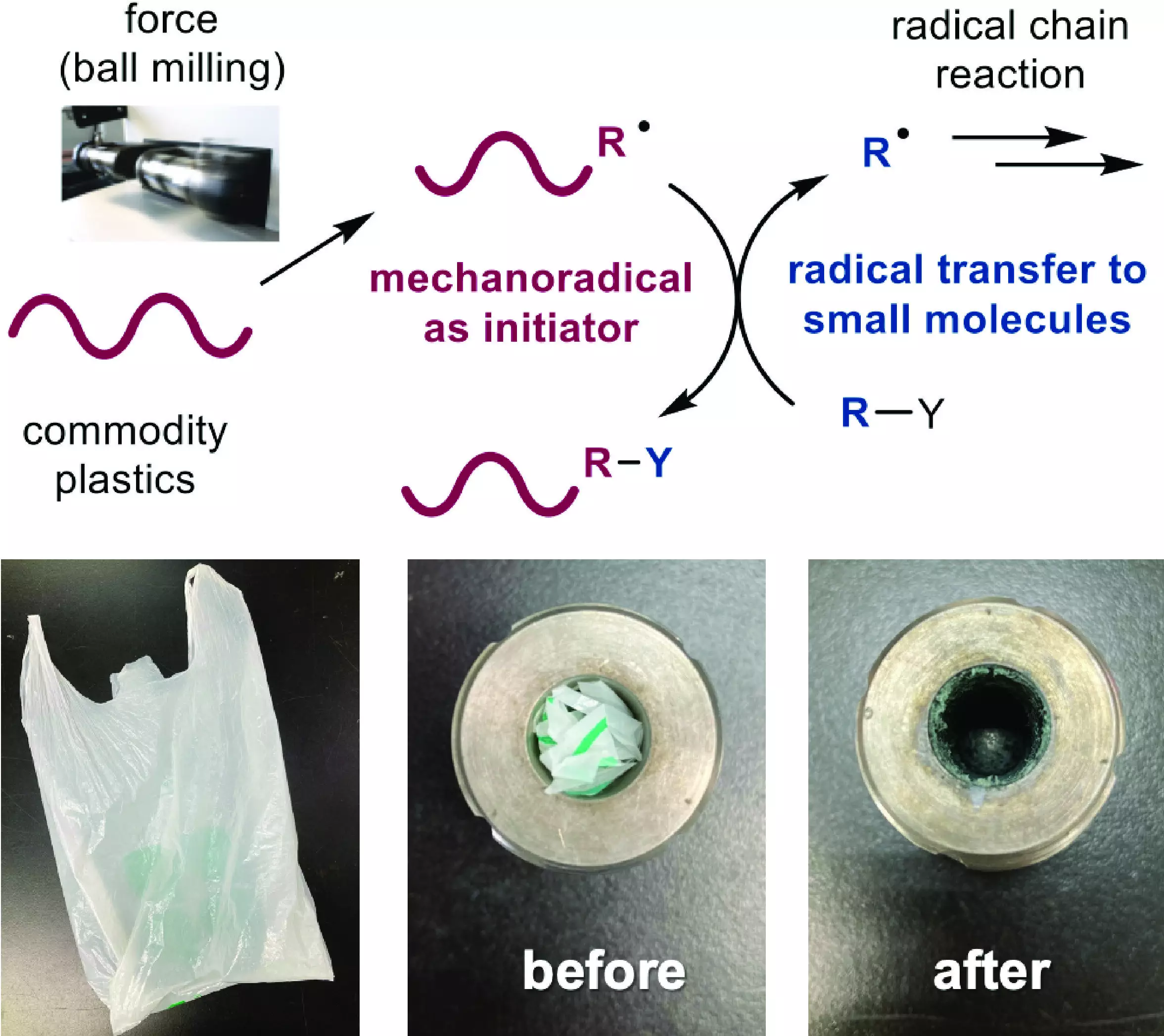Single-use plastics have long been a cause for environmental concern due to their contribution to pollution and waste. However, a team of researchers from the Institute for Chemical Reaction Design and Discovery (WPI-ICReDD) at Hokkaido University has developed a groundbreaking method that explores the potential of plastic bags in detoxifying hazardous chemicals. By utilizing commonly found plastic materials, such as polyethylene and polyvinyl acetate, this approach not only offers a safer alternative to explosive compounds but also provides a means of recycling plastic waste.
A Radical Approach
The researchers employed a ball mill, a machine that vigorously shakes a steel ball inside a steel jar to mix solid chemicals. In this process, the mechanical force exerted by the ball on the plastic breaks a chemical bond, leading to the formation of radicals. Radicals possess highly reactive, unbonded electrons that facilitate a self-sustaining chain reaction, specifically promoting dehalogenation. Dehalogenation refers to the replacement of halogen atoms with hydrogen atoms in organic halides. This innovative use of plastic as a chemical reagent represents a paradigm shift in organic synthesis, according to Associate Professor Koji Kubota. He believes that this approach not only enables the development of safe and efficient radical-based reactions but also offers a solution to the growing issue of plastic waste.
To demonstrate the reusability of waste plastic, the researchers integrated shreds of a common grocery bag into the ball mill jar and successfully carried out the reaction. Moreover, their method exhibited promising results in treating highly toxic polyhalogenated compounds, commonly used in various industries. By employing polyethylene as an initiator, the reaction efficiently removed multiple halogen atoms from a flame retardant compound, thereby reducing its toxicity. This versatility in treating different chemical compounds positions this method as a potential game-changer in the industry.
The potential advantages of this novel approach are not to be overlooked by the industry. The utilization of stable, readily available plastic materials as initiators for radical chain reactions offers significant cost and safety benefits. This new perspective on chemical processes not only addresses the pressing concerns of waste plastic but also presents a promising opportunity for the development of industrially attractive and highly efficient reactions. Professor Hajime Ito envisions that this method will capture the attention of the industry and pave the way for a more sustainable and responsible chemical synthesis.
The research conducted by the team at Hokkaido University marks a significant step forward in utilizing plastics for a more environmentally-friendly purpose. By harnessing the power of plastic bags in detoxifying hazardous chemicals, this innovative method not only enhances the safety of radical chain reactions but also addresses the urgent need to reduce plastic waste. The potential applications of this approach in various industries highlight its versatility and appeal, offering a positive outlook for a more sustainable and responsible future.


Leave a Reply